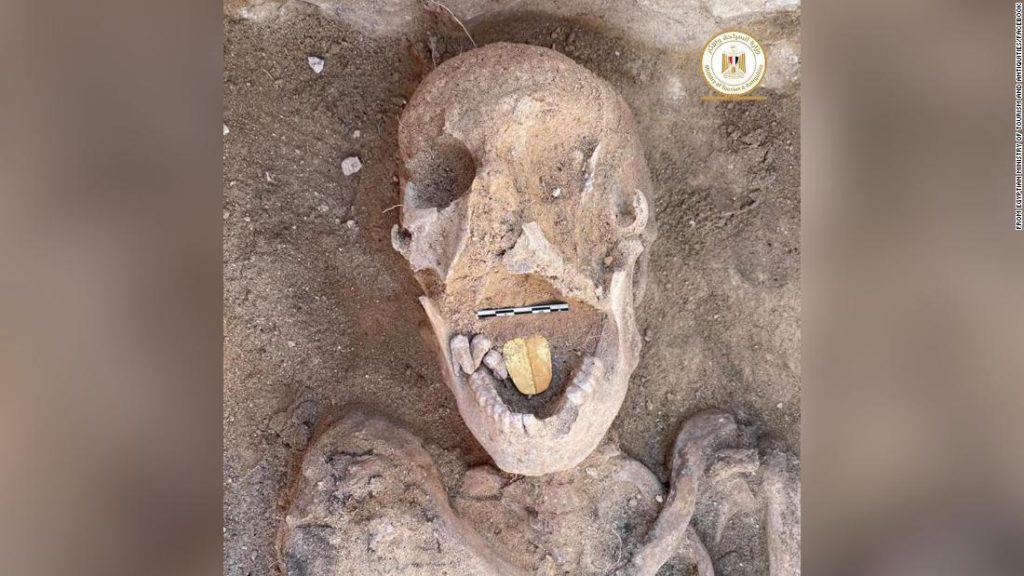(CNN) — Archaeologists working at an Egyptian burial site have unearthed ancient mummies with golden tongues.
The team, headed by Kathleen Martinez of the University of Santo Domingo in the Dominican Republic, were working at the Taposiris Magna Temple in western Alexandria when they discovered 16 burial shafts dating from the Greek and Roman eras.
The archaeologists discovered “remnants of gilded cartonnage” — a case made of tightly fitting layers of linen or papyrus glued together — the ministry said, as well “amulets of gold foil in the form of a tongue that were placed in the mouth of the mummy.” This, they believe, was a special ritual to ensure the dead could speak to the court of the god Osiris in the afterlife.

The finds were from the Greek and Roman eras, according to the Ministry of Tourism and Antiquities.
From Egyptian Ministry of Tourism and Antiquities/Facebook
Martinez singled out two of the mummies as the most significant among the find. One bears gilded decorations showing Osiris, the god of the afterlife, while the other wears a crown decorated with horns and a cobra snake on the forehead. On its chest is a gilded decoration depicting a necklace, from which hangs the head of a falcon, the symbol of the god Horus.

The discoveries were made at the Taposiris Magna Temple in western Alexandria.
From Egyptian Ministry of Tourism and Antiquities/Facebook
Another important find was a funeral mask for a woman, according to Dr Khaled Abo El Hamd, director-general of the Ministry of Antiquities’ Alexandria section. He also highlighed eight golden flakes representing the leaves of a golden wreath on a funeral mask, and eight marble masks dating back to the Greek and Roman eras, which “show high craftsmanship in sculpture and depiction of the features of its owners”, the statement said.
Greek king Alexander the Great of Macedon conquered Egypt in 332 BCE, with control passing after his death to the Greek Ptolemy dynasty. In 30 BC, they succumbed to the Romans, who ruled until around 640 AD.
You may also like
-
UK coronavirus variant has been reported in 86 countries, WHO says
-
NASA technology can help save whale sharks says Australian marine biologist and ECOCEAN founder, Brad Norman
-
California Twentynine Palms: Explosives are missing from the nation’s largest Marine Corps base and an investigation is underway
-
Trump unhappy with his impeachment attorney’s performance, sources say
-
Lunar New Year 2021: Ushering in the Year of the Ox

